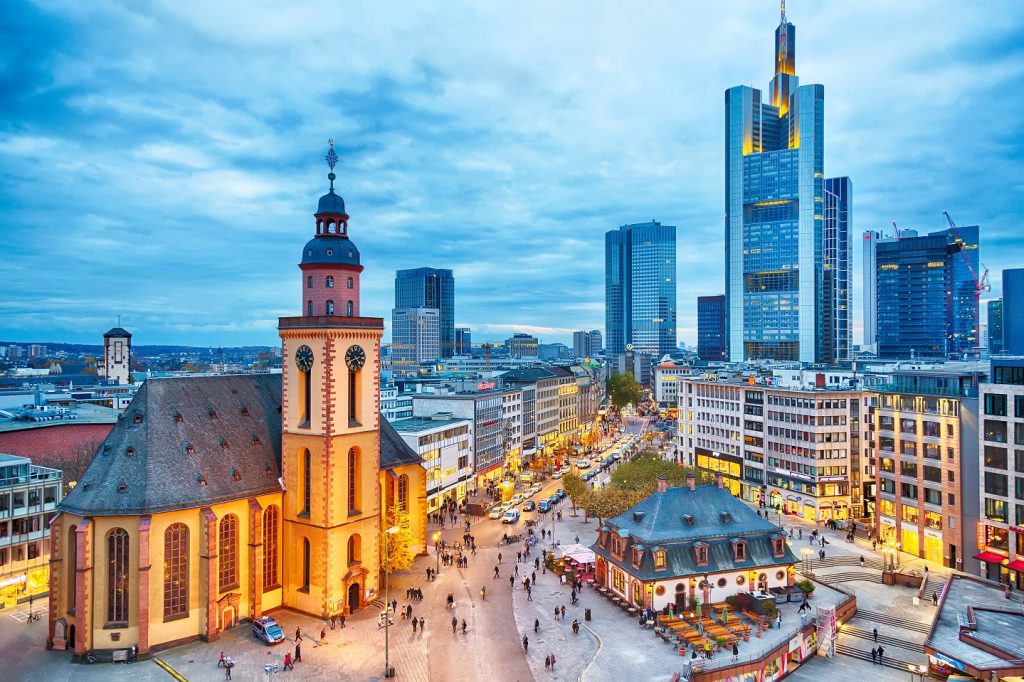
Living and studying in Germany is one of the best experiences one can have. I have been in Berlin as a student for a while; the impact of my experiences here highly reflect in my academics, career and personal life. I’ll share with you basic details you should know about studying and living in Germany.
I’ll cover these details in the following topics;
Lifestyle While Studying in Germany
Accommodation While Studying in Germany
Job Opportunities While Studying in Germany
Standard of Education
Studying in Germany is a huge plus because the country boasts of a high standard of education. This I know firsthand. The professors are remarkably intelligent. They demand the best quality from students. Our learning is both theoretical and practical; presentations are also used for assessment alongside examinations. You have to read an article, create a PowerPoint presentation and then present your findings on the article to the entire class. This builds your confidence and trains you into becoming a better public speaker.
Also, you can be teamed up with other course members and sometimes asked to even give an assessment of your team members for your presentation and group work. This teaches you how to work as a team with people from different backgrounds and cultures. It also teaches you conflict resolution. Take home assignments are quite minimal and there are no tests in some schools.

Lectures while studying in Germany are usually in the form of interactive sessions between the Professors and students. Professors welcome different opinions even if they differ from theirs and are happy to discuss it in class and outside with students; adequate learning materials are provided for students to read, acquire more knowledge and develop broader understanding of the courses. Exams are mostly computer based, although some are written.
Professors like their answers direct. Classes are usually for 3 hours 15 minutes and each subject is usually taken once a week. The German Educational system is flexible. You don’t have to take all your courses for the semester at once. Also, there are two exam periods for a semester. In my school, it’s July and September. You can choose to write your exams in whichever month favors you. Also, there are 3 trials to write an exam if you fail.
Overall, the standard of education in Germany is very high.
Lifestyle While Studying in Germany
As you study in Germany, you’ll notice that Germans are quite reserved but helpful. They like to keep to themselves and have very little conversations with you. They are family people and so only really hang out with their family or pets. It’s not as warm in Nigeria where you greet strangers or hail strangers. Here, everyone minds their business. But they are very helpful. If you need help and you approach them, they will go the extra mile to help you.
For example, you can be on a train, no one will say a word to the other person. No one will smile at you. All just straight stares. But if you ask for directions on the train, they will be happy to help. So while they are not warm in that extroverted sense, they are helpful. This doesn’t mean they are wicked or they don’t like you, its just their style. It’s just their way of life.
The younger generation are are usually warmer. You stand a better chance of making friends with a German if you are fluent in German language. Knowing how to speak the language while studying in Germany breaks a lot of barriers. Germans are also conservative withtheir humor too. You hardly see them smile or laugh and they are not funny people either. They are direct and straight to the point. But everyone lives in his/her own space.
Cost of Living
I stay in Berlin. Its one of the most expensive cities in Germany when compared to other cities but it is probably the cheapest capital in Europe. Cost of living is pretty low for a capital. You might spend only a 100 euros on food for a month if you cook often and it will last you even till the next month. As a student studying in Germany, transport is free but if you are to pay, a full day transport ticket for both buses and train within Berlin cost around 4 euros.
Eating out can be expensive but there are also cheap places like the Doner and the Curry wurst with ponmes. Generally, if you pay cheap rent as a student, with your health insurance which is about 90 euros plus and phone and TV bill, 600 euros should be okay to sort out your basic needs per month. Outings in Berlin are not bad. There are lots of free fun stuffs to do and free places to visit. You can get cheap clothing at thrift stores and normal stores like Primak, kik etc. Food and household items can be gotten at supermarkets and foodstores like Rewe and Lidl. There are also 1 euro stores where you can get household utensils for cheap too.
In summary Berlin is a cheap capital. Most other states are way cheaper then Berlin (except for Munich and maybe Frankfurt).
Accommodation While Studying in Germany
For students studying in Germany, the most common type of accommodation is a shared apartment where you have your own room but you share the kitchen and bathroom with one or more persons. There are also private apartments which are more expensive than shared apartments. With these apartments, you have your own kitchen, bathroom and toilet.
Availability of accommodation varies according to size and population of the area in Germany. Securing accommodation in smaller cities is quite easier than in bigger cities. If you plan on staying in a big city, it’s best you start searching for accommodation months before your arrival. One tip is to you register with Studentenwerk viatheir website and apply for accommodation. Studentenwerk is a state-run, non-profit organization for student affairs in Germany; they operate in all states, including Berlin where schools are present. Among other responsibilities, they provide subsidized housing for students. There’s usually a long waiting list, so the earlier you apply, the higher your chances of getting a house with them.
Just like the availability, cost of housing also varies according to the location and type of accommodation. Its usually cheaper in small towns with prices ranging from 150-300 euros for housing. In Bigger cities, its more expensive. Only Studentenwerk provides cheap housing at a range of 215-270 euros. However, the normal standard price ranges from 300-800 euros for housing in big cities.
Transportation in Germany
Transportation in Germany is one of the best in the world. There is the public transport and the private transport. The public transport consists of the Tram, the U-bahn (underground train), the S-bahn (normal train) and the public bus. These public transport systems run within the city. Public transport is usually free for students, which saves a lot of cost. But in Berlin, if you are have to pay for transportation,you pay a maximum of 7 euros for the whole day and the whole transport system. The transport system is usually efficient with very little delays and always on time. There is usually an average of 6 minutes difference between the last train and the next train and an average of 10 minutes between the last bus and the next bus.
There is the autobahn- an intercity train. Its usually paid for by everyone. Its very comfortable fast and also efficient.
The private transport is also paid for and very expensive. They are usually taxis within city and buses for intercity travels. The most popular intercity travel bus is Flixbus.
Climate in Germany
One thing you’ll quickly notice while studying in Germany is that the weather is very different if you’ve lived in Africa. There is summer, fall, winter and then spring. Summer is usually an average of 24 degrees. Summer is the liveliest time in Germany. It’s during the summer that a lot of events come up and people come out to play, go the beach etc. its a really bubbly period in Germany. Fall is the transition from summer to winter. Things begin to get duller. Weather fluctuates a lot but generally it gets colder. The sunset and sunrise period begin to change and leaves begin to fall off trees.
Winter is the complete opposite of summer. During winter, its a gloomy period. Sun rises around 8 am and sets as early as 3 pm. There are dark clouds. People don’t come out except they need to. I can’t say about the average weather but winter can be really depressing and quiet. Spring is the transition between winter and summer. The weather gets warmer but can still be pretty cold. Trees gain their leaves back.
Job Opportunities While Studying in Germany
There are job opportunities in Germany. Both official and menial. Major cities like Berlin, Munich, Frankfurt and Hamburg, have numerous official and menial jobs. In industrial cities or towns that have car factories and other manufacturing firms, there are usually opportunities for students studying in Germany. Small towns with little or no factories, the case is quite different.
As a student, you are only allowed to work 20 hours a week during the school semester. There are two categories that fit such hours of work and that is student job and mini job. A student job is a job in a firm specially designed for students. You need a matriculation certificate from your school as proof. Jobs like this are structured to meet the Government’s rule of 20 hours per week.
There is no restriction on you salary as you can earn as much as you want as long as you don’t work more than 20 hours in the week. In this situation, your salary is taxed by the Government. The second type of job that fits students for the semester is the mini job. The mini job can be done by both students and non-students and usually doesn’t require your matriculation certificate. You earn a salary of max 500 euros and you work for quite a short amount of hours per week. Your salary is not taxed.
In conclusion, studying in Germany can be quite the wholesome experience. As we know, studies goes beyond the classroom, that’s why I took time to break down everything you need to know. If you’re certain that Germany is for you, make sure you’re well prepared. And when you get to Germany, don’t forget what you’re here for and make friends too. Having great friendships and relationships will greatly enrich your journey. Goodluck!
Modupe Jaiyesimi
Modupe Jaiyesimi is an Economist, currently studying Master of International and Development Economics at Hochschule for Technik und Witschaft (HTW) Berlin. He had his Bachelors in Economics studies at Babcock University, Nigeria. Alongside his master studies, he works at Durst Express and Ivalis, Germany.





















